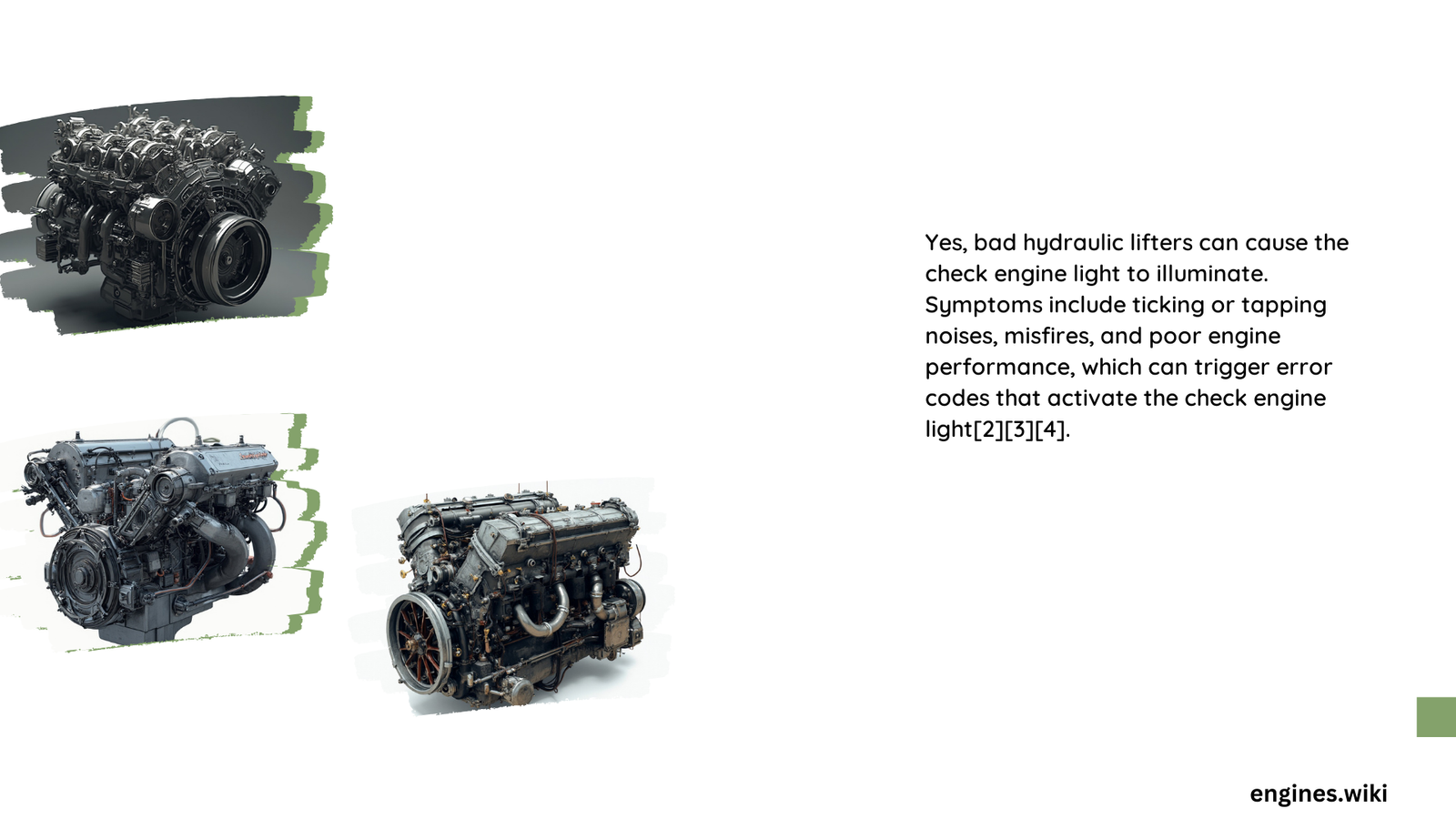Bad hydraulic lifters can indeed cause significant engine performance issues that trigger the check engine light. When lifters malfunction, they disrupt valve operation, leading to engine misfires, unusual noises, and potential diagnostic trouble codes that illuminate your vehicle’s warning indicator. Understanding these symptoms and their implications is crucial for preventing extensive engine damage and costly repairs.
What Causes Lifters to Trigger Check Engine Light?
Hydraulic lifters play a critical role in an engine’s valvetrain system, maintaining precise valve clearance and ensuring smooth engine operation. When these components fail, they create a cascade of mechanical problems that can directly activate your vehicle’s diagnostic systems.
How Do Bad Lifters Generate Diagnostic Trouble Codes?
Bad lifters generate diagnostic trouble codes through several mechanical failure mechanisms:
- Valve Operation Disruption
- Prevents proper valve closure
- Creates inconsistent valve timing
-
Generates irregular combustion patterns
-
Misfire Generation
- Interrupts fuel and air mixture
- Causes uneven cylinder performance
- Triggers random misfire detection
What Specific Check Engine Light Codes Indicate Lifter Problems?
| Code | Description | Potential Lifter Relationship |
|---|---|---|
| P0300 | Random/Multiple Cylinder Misfire | High Correlation |
| P3108 | Lifter Performance/Stuck | Direct Indication |
| P3411 | Lifter Hydraulic Performance | Precise Diagnostic |
What Are Precise Symptoms of Failing Lifters?

Can You Hear Lifter Damage?
Lifter failures produce distinctive auditory warnings:
– Metallic ticking sounds
– Rhythmic tapping at idle
– Increased noise during acceleration
– Pronounced knocking under high RPM conditions
How Does Lifter Failure Impact Engine Performance?
Performance degradation occurs through multiple channels:
– Reduced horsepower (estimated 10-25% loss)
– Decreased fuel efficiency
– Inconsistent acceleration
– Potential long-term engine component damage
What Are Diagnostic Techniques for Identifying Lifter Issues?
Professional mechanics employ multiple diagnostic strategies:
1. Acoustic analysis
2. OBD-II scanner evaluation
3. Visual valvetrain inspection
4. Compression testing
5. Oil condition assessment
What Are Potential Repair Costs and Considerations?
Lifter replacement involves significant financial investment:
– Individual lifter cost: $10-$30 per unit
– Complete lifter set: $200-$600
– Labor costs: $500-$1,500
– Total repair range: $700-$2,500
When Should Immediate Action Be Taken?
Warning Signs Requiring Immediate Attention:
– Persistent check engine light
– Continuous ticking noises
– Significant performance reduction
– Visible metal debris in engine oil
Preventative Maintenance Recommendations
- Regular oil changes
- Use high-quality engine oil
- Monitor engine performance consistently
- Address unusual sounds promptly
Conclusion
Bad lifters can definitively cause check engine light activation through multiple mechanical failure modes. Prompt diagnosis and professional intervention prevent extensive engine damage and costly repairs.
Pro Tip: Never ignore persistent engine noises or warning lights, as early detection can save thousands in potential repair costs.
